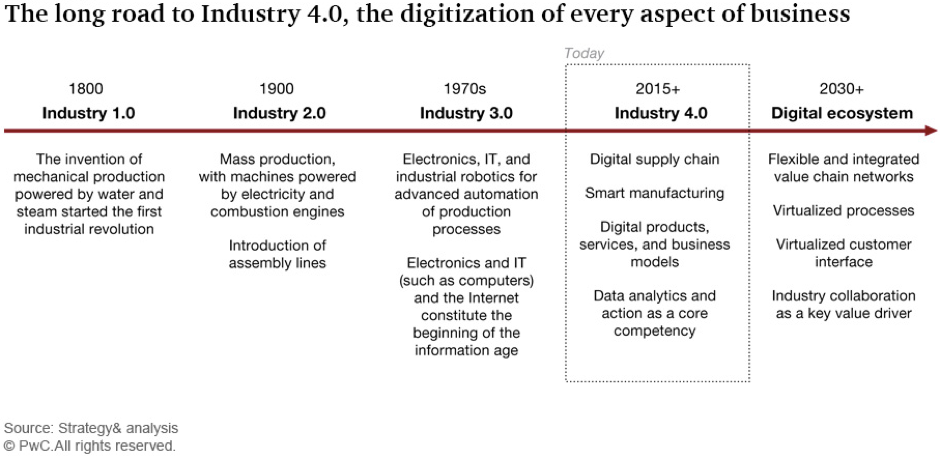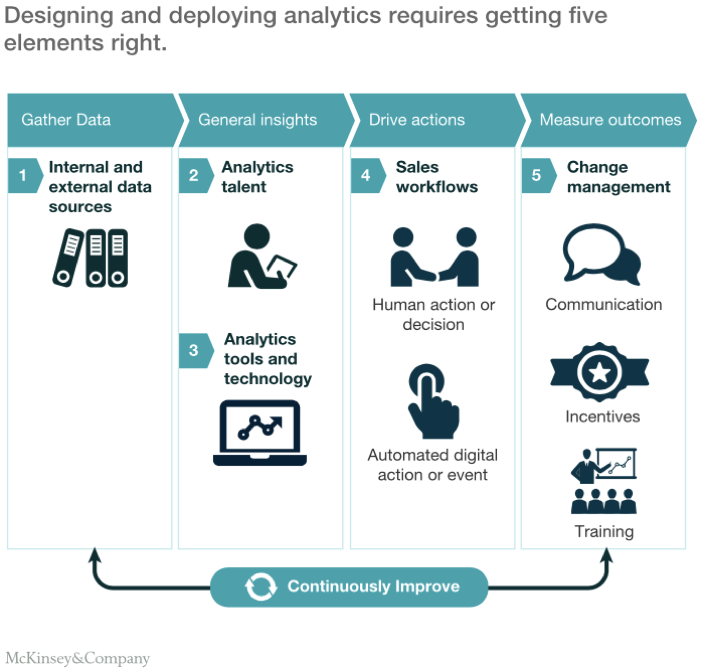Data analytics and the internal consequences for marketing and sales
The fourth industrial revolution has begun. Just as the first industrial revolution in England had a major impact on the workplace, the fourth revolution will greatly change the playing field of companies. The fourth industrial revolution is characterised by a digital supply chain, smart manufacturing, digital products, and business models that are all supported by data analytics.

Data analytics
Due to the digitisation of technologies, there is more room for an interconnection of products, value chains, and business models. The interconnection is supported by data and also generates new data. An example is a smart thermostat which learns the routines of the household and adjusts the temperatures accordingly. The data that is generated not only helps the households, but also helps companies make sharper propositions. Because of all the data that is generated, it is easier for companies to recognise customer needs. But not just “Big Data” is relevant to companies, because data can also be applied at a smaller scale. Companies often have a lot of data available to them, but they unfortunately do not know how to convert that data into valuable information. Sales data analytics offers the solution for recognising valuable insights in the market. Companies can better understand their customers and have more up-sell and/or cross-sell opportunities. To apply data analytics, there are 5 elements that need to be correct and follow each other in an iterative process:

Harmony between marketing and sales
In order to get the most out of the data, the five above elements need to be properly supported by the internal organisation. In addition to traditional account management and lead generation, the data also allows for addressing marketing tasks. Think of market research for the benefit of the customer or segmenting the market. What stands out is that the sales and marketing analytics are essential and complement each other to discover the commercially relevant insights. Sales and marketing teams have the same objective of creating customer value and improving business results. Previously, marketing and sales teams would be in each other’s way. Sales teams often thought that the marketing teams had no idea what customers actually think, and marketing teams often thought sales teams were too focused on the individual customer and the short term. The differences between marketing and sales remain the same, but they are becoming more and more dependent on each other, which makes cooperation between the two necessary. Therefore, data analytics represents a lot of potential for companies, provided that things are well-organised internally.
Angelo Tungga